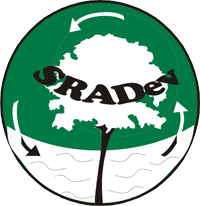BY OKAFOR AUGUSTINE IZUCHUKWU
The Sustainable Research and Action for Environmental Development (SRADev Nigeria) has urged the Federal Government to prioritise investments in organic and agroecological farming as safer, sustainable alternatives to conventional agriculture.
The organisation made the call on Friday, August 8, 2025, in Abuja at a news conference themed “Stop the Spread of Highly Toxic Chemicals in Our Food: Save Our Families, Save Our Health and Future.”
Mr. Victor Fabunmi, an Environmental Toxicologist and Policy Advocate with SRADev Nigeria, stressed the need to intensify awareness and advocacy for organic agriculture while de-emphasising conventional practices that rely heavily on chemical inputs.
He proposed integrating organic agriculture into the nation’s educational curriculum and providing financial support to specialised training institutions.
“Our passionate call is for the Nigerian government to facilitate access to certification services. There is currently no government-approved certifying body to standardise products and ensure compliance with organic production systems.
“Nigeria must end its dependence on globally banned pesticides for health and ecological safety. The time to invest in organic, agroecological alternatives is now, ” he said.
Prof. Simon Irtwange, co-founder of the Alliance for Action on Pesticides in Nigeria (AAPN), also warned about the dangers of highly toxic chemicals to human health and the environment.
He noted that government programmes, often facilitated by legislators, ministries, and development partners, routinely distribute chemical fertilisers and pesticides to farmers.
According to him, while these products contribute to agricultural productivity, they pose significant public health, trade, and environmental challenges.
“A critical concern is that a significant portion of these pesticides fall under the category of Highly Hazardous Pesticides (HHPs),” he said,
Irtwange added that viable alternatives and innovations were increasingly available both locally and globally.
SRADev also called for an immediate review and strict enforcement of national pesticide regulations to stop the importation, sale, and use of HHPs.
The group also urged the review of NAFDAC’s pesticide registration regulations to ensure environmentally sound management of these chemicals at the end of their lifecycle.
HHPs are pesticides recognised internationally, including by the World Health Organisation (WHO), as posing severe acute or chronic risks to human health and the environment.

